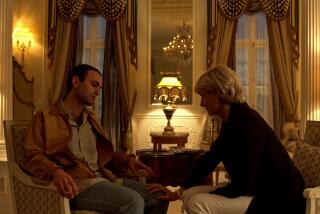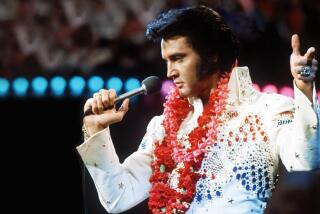The Enigma of the Di Pilgrims
So they buried her. All week Iâd been hoping that once the Peopleâs Princess was put to rest the astonishing obsession with her death would grind to a halt like a cheap watch. And be gone forever.
Now I know better. Princess Di, in death, will not go away. Sheâs too big. She will continue to hover over us, offering solace to some and posing her eternal enigma to others.
Soon we will begin to see the telltale signs. Her resting place outside of London will grow into a shrine. Each year pilgrims will feel themselves drawn to a Meaningful Place, perhaps her grave site, perhaps the tunnel at Place de lâAlma. They will arrive by the thousands.
She will, in effect, evolve into the British Elvis.
*
*
No disrespect is intended here. In the universe of dead celebrities, Elvis has stood alone. Unlike James Dean or Marilyn Monroe or John Lennon, Elvisâ cultural power grows each year. His appeal, in death, has taken on a profundity that borders on the religious for thousands of persons.
The writer Ron Rosenbaum contends that Elvis has âtranscended the familiar contours of dead celebrity cult and begun to assume the dimensions of a redemptive faith.â
Clearly, Diana is not that big. Yet. But you could sense the similarities in the worshipful air that permeated the scenes from London over the past week. As with Elvis, Diâs death converted her to a martyr of some mysterious kind. As with Elvis, this martyrdom lent her power over peopleâs souls.
You could watch it happening. People would come, mostly women, to kneel at the altar of flowers and pray. Soon they would be sobbing with grief and loss, their bodies shaking. All the while, within you, some small voice was saying, âThey never even knew this woman . . . â
What was it, that power? After all, other celebrities have died suddenly and tragically and never provoked this response. What sets Elvis and Di apart?
Since I grew up in Memphis, only miles from Graceland, I wish I could offer answers of my own. But truth be told, I was no big fan of Elvis and missed his central message.
But others got it. According to Rosenbaum, the pilgrims attending Dead Elvis Week do not come seeking a remembrance of past glory but rather succor for their own pain. They see Elvis as a hero who hurt in the same way they hurt, who has the power to heal.
For what itâs worth, they love the Late Elvis, not the Early Elvis. Their adored icon is the fat, failing man who seemed as lost and alone as they feel themselves.
The eternal anthem of Death Week, in fact, is a relatively obscure Elvis song titled âHurt.â Hurt is what makes Elvis special.
Songwriter Paul Simon wallows in the same theme with his famous homage to Elvis, âGraceland.â It tells the story of a lost man who comes to Memphis with his son from a former marriage. âWe will all be received in Graceland,â the song says.
Put it another way, Elvis died for their sins.
And, just maybe, so did Princess Di.
Different sins, of course. Di seems to have died for all women who had philandering husbands and in-law families who cast them out, leaving them to travel the globe alone and unloved.
Sure, Di was beautiful, rich and famous--like Elvis--but she still broadcast the big hurt. That hurt registered most with women, who tended to âgetâ Diâs death long before men. They also understood that, as with Elvis, itâs the slightly shopworn Late Di who was martyred, not the fresh Early Di.
*
*
Finally, a geopolitical note. Rosenbaum claims that Americaâs obsession with the late Fat Elvis âis a way of coming to terms with our own sense of loss, with whatâs become of us as a nation--the transition America has made from the young, vital, pioneer nation we once were (the young, vital Elvis we put on our stamps) to the bloated colossus we feel weâve become: the Fat Elvis of nations.â
Maybe thatâs a bit much, but get this: On TV the day before the funeral, a âroyal historianâ speaking on one of the networks suggested that the Di phenomenon was all about âthe end of British empire and power.â
So we shall see. If people start spotting Di in an ashram in India or washing dishes at a casino in Vegas, we will know that she has staying power. It means we are refusing to let her die because she is too valuable.
I would like that. It would be consoling. Much better than believing all this energy and emotion was wasted on a princessâ sordid race with the paparazzi through a concrete tunnel in the Paris night.
More to Read
Sign up for The Wild
Weâll help you find the best places to hike, bike and run, as well as the perfect silent spots for meditation and yoga.
You may occasionally receive promotional content from the Los Angeles Times.






